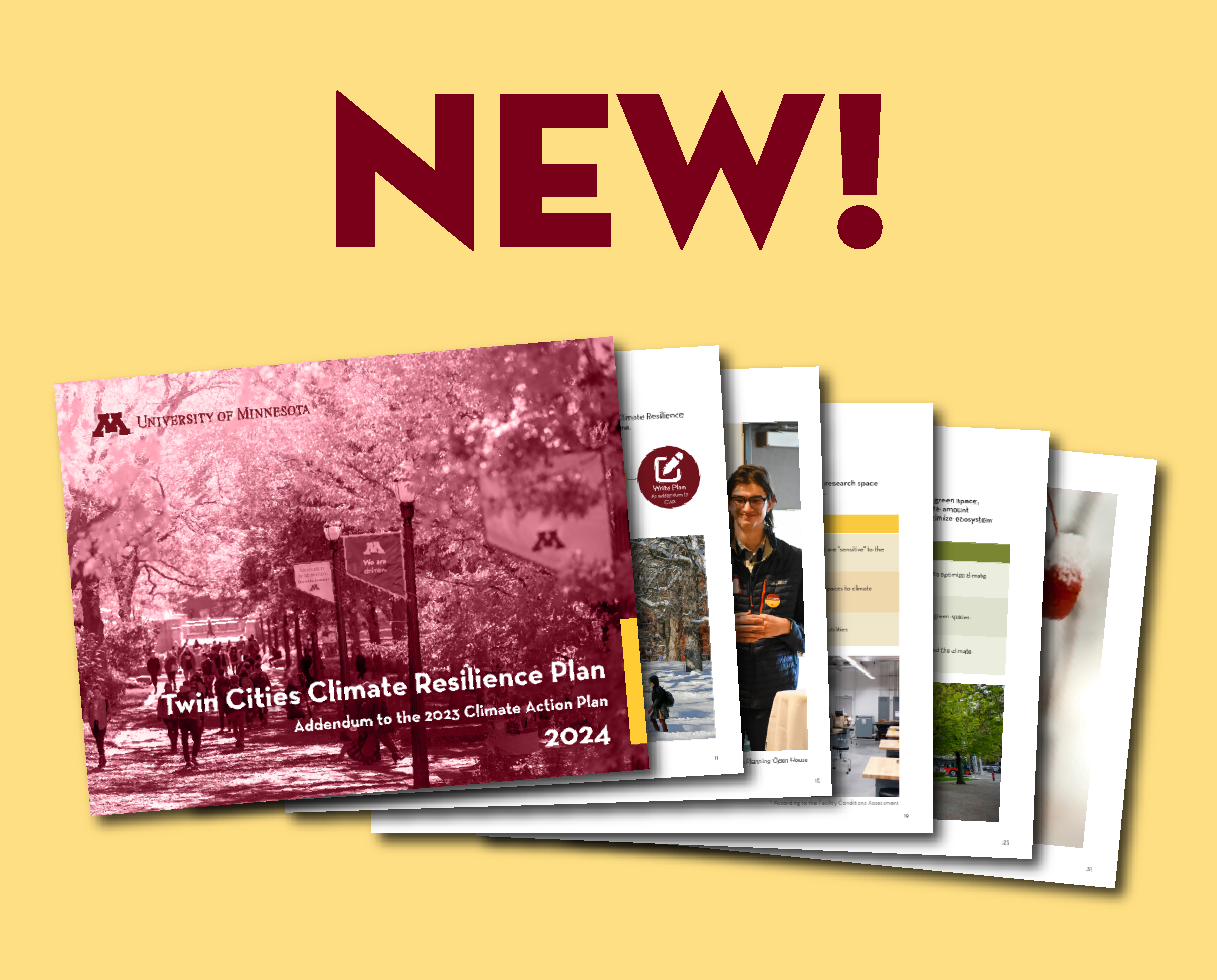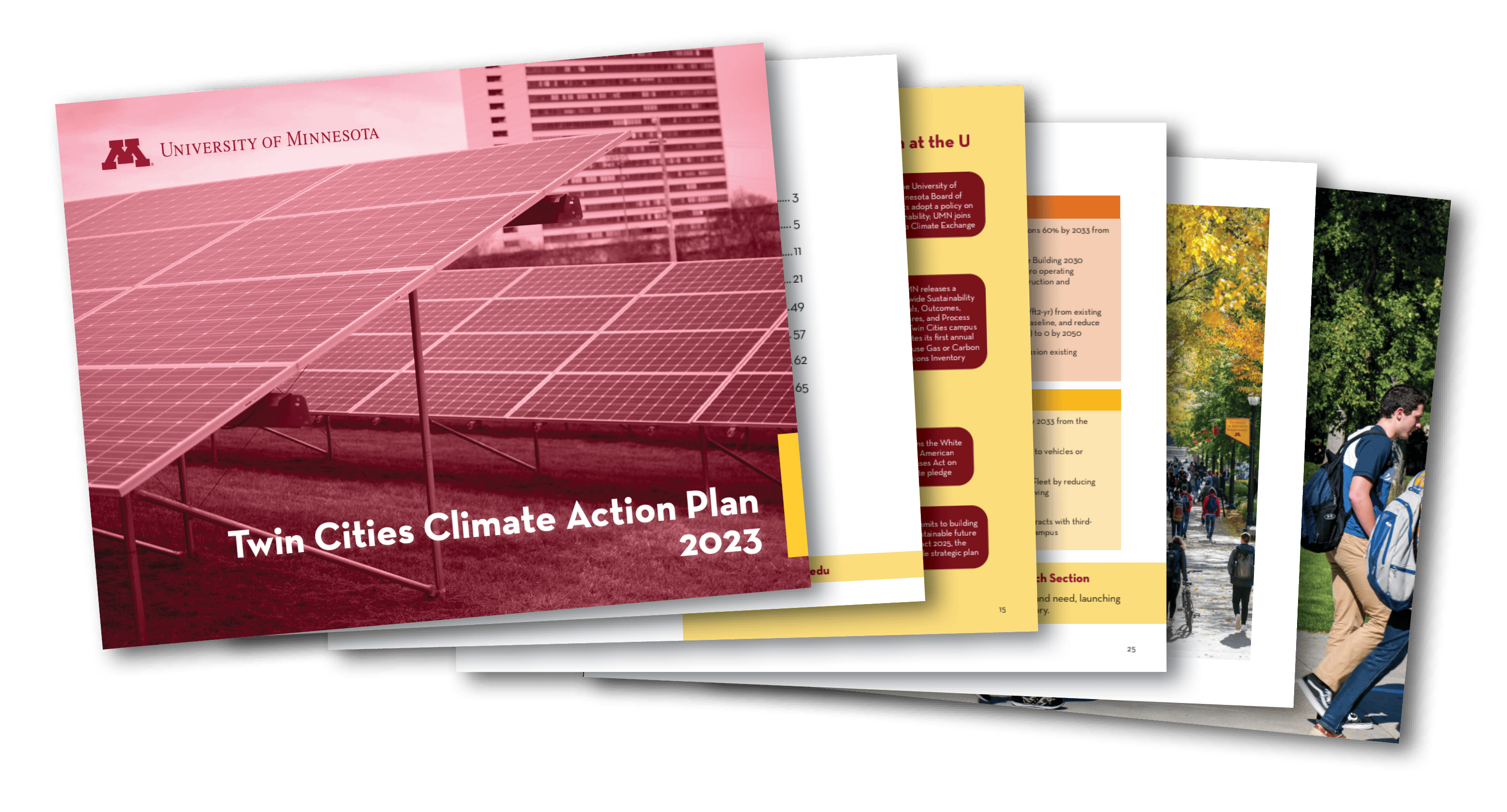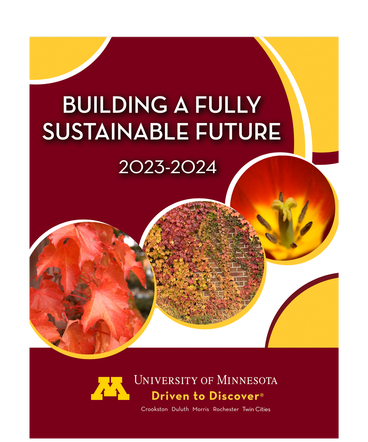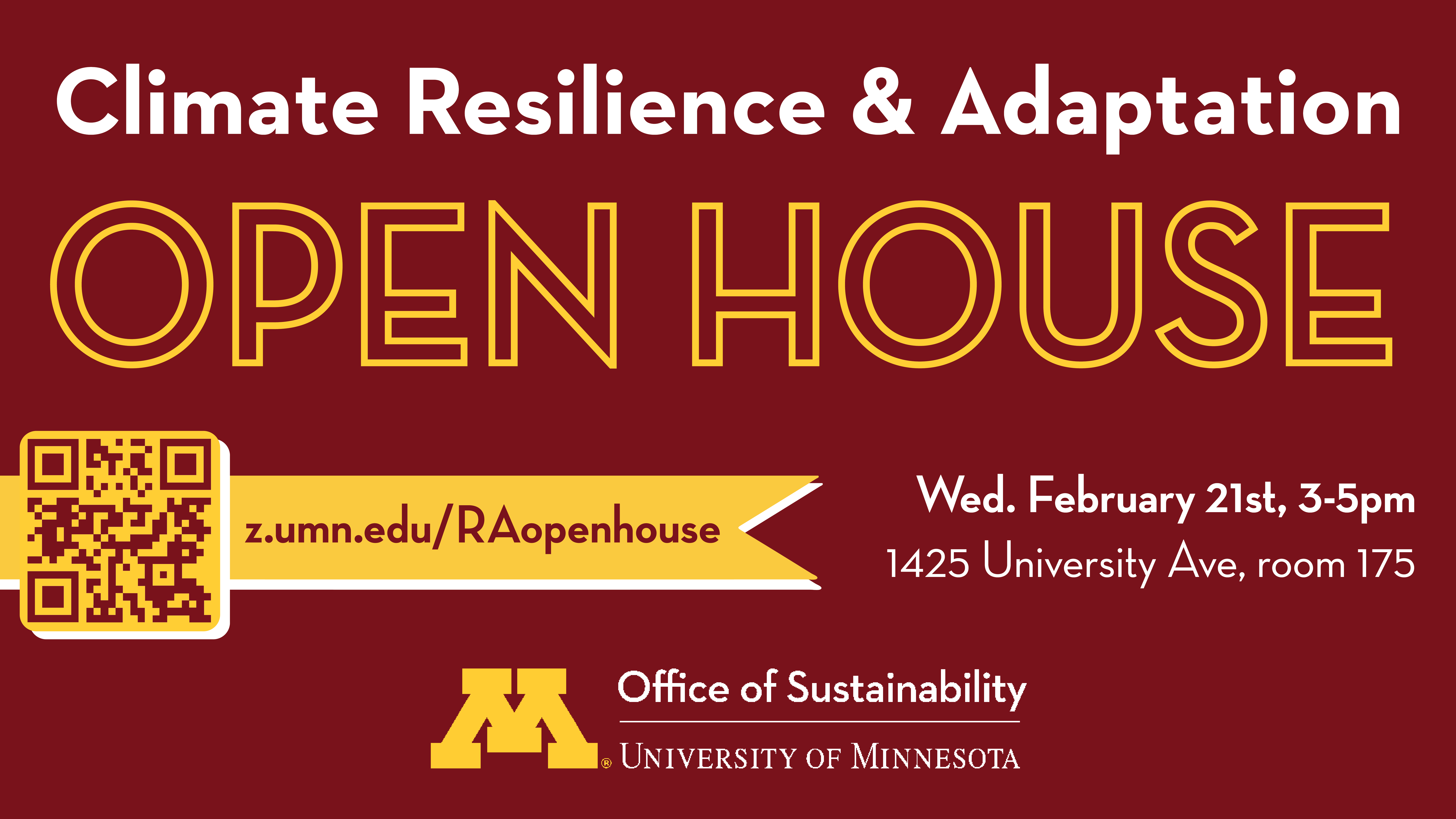Call for New Members: Twin Cities Sustainability Committee

Join the Twin Cities Sustainability Committee!
This committee is open to staff, faculty, undergraduate & graduate students.
The Twin Cities Sustainability Committee was launched in the fall of 2021 with a charge of guiding the MPact 2025 goal to “Build a fully sustainable future” as stated in the Systemwide Strategic Plan.
The initial focuses of the committee included completing the STARS report and the creation of a new Climate Action Plan.
Moving forward, the committee’s work will advise the Twin Cities Office of Sustainability on all activities, inclusive of operations, teaching, research, and outreach, and will involve:
- Identifying, curating, and fostering the adoption of specific strategies to advance sustainability and climate action at the campus level
- Advancing campus sustainability metrics and reporting
- Fostering collaboration and open exchange between academic and operational entities
- Innovating the next phase of sustainability at the University of Minnesota-Twin Cities to be inclusive, creative, and progressive




